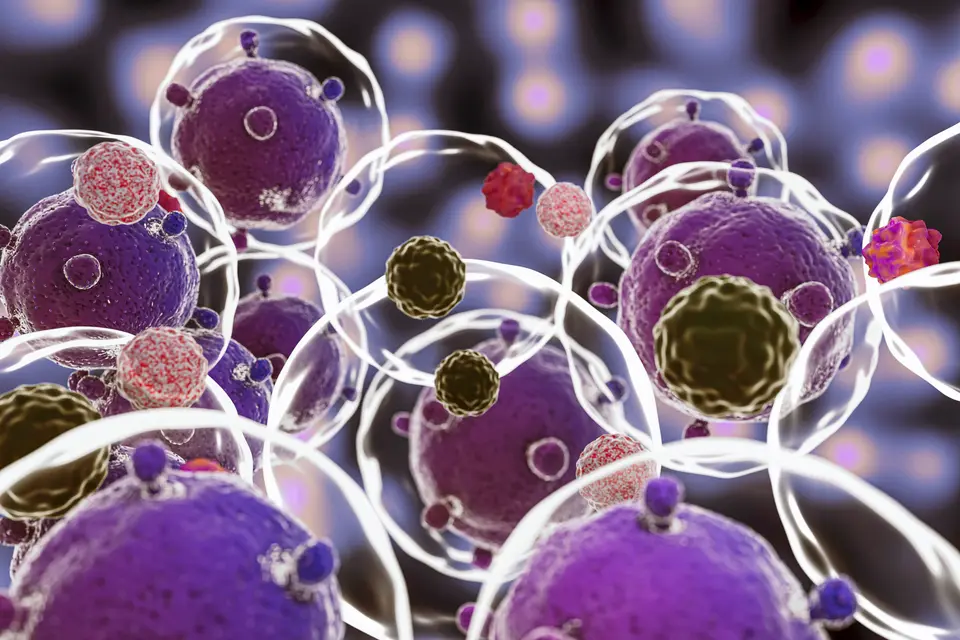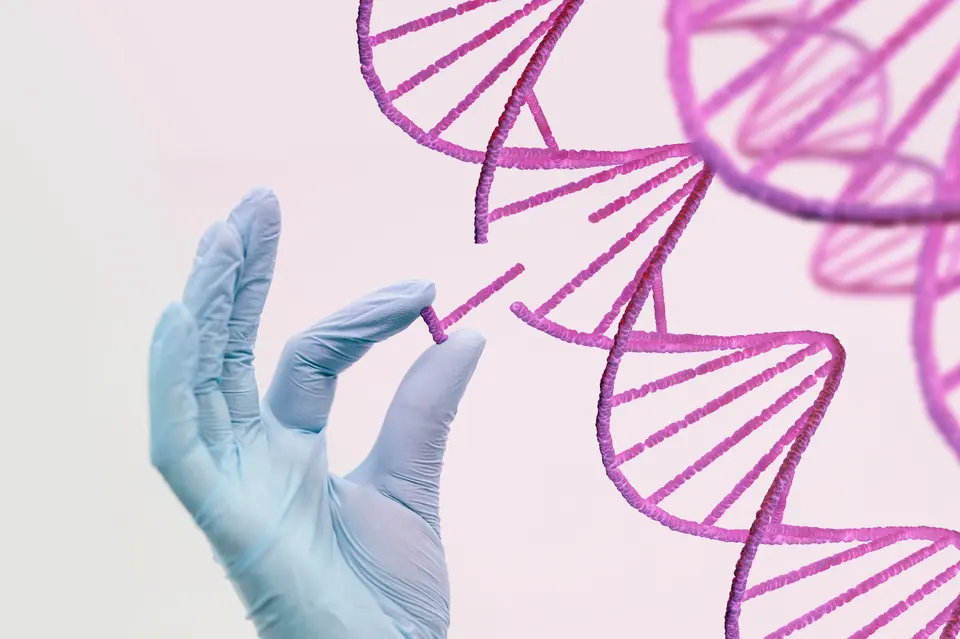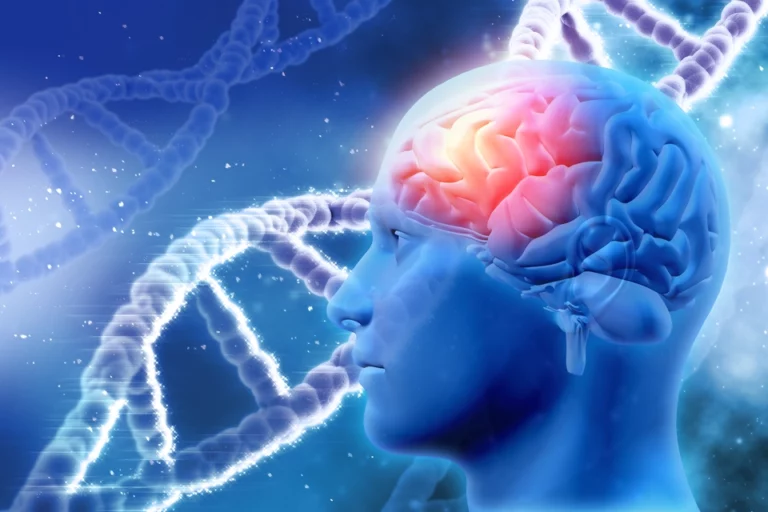Intermittent Fasting For Detox And Healing: The Science Behind The Benefits
Image by pvproductions on Freepik
Have you ever wondered what happens to your body when you fast? You might be surprised by the answer. It’s not just about losing weight or following a religious practice. It’s about understanding and enhancing your body’s innate healing processes.
Detoxification is your body’s way of cleansing itself, flushing out toxins that inevitably accumulate from our environment, diet, and lifestyle. I’m talking about the natural detox capabilities of your liver, kidneys, skin, and even your lungs – not those questionable detox teas or juices!
You might be asking, how does refusing to raid the fridge every few hours tie into detox? Well, when you fast intermittently, it gives your body a break, a kind of ‘time-out’ if you will, from its standard digestive duties. This pause in digestion may initiate something quite remarkable within your cells; a self-cleaning process called autophagy. But more on that in a bit.
But that’s not all. Intermittent fasting not only triggers autophagy, but also stimulates stem cell production and boosts their regenerative capacity. Stem cells are the body’s raw materials, cells from which all other cells with specialized functions are generated. They have the incredible ability to morph into a variety of cell types and replace cells damaged by toxins, giving organs a new lease on life.
This isn’t just a discussion about skipping meals; it’s about exploring the intersection of autophagy and stem cells and how they can support your body’s ability to rid itself of toxins and heal itself. I really hope that by the end of this, you’ll have a good grip on how intermittent fasting can impact detoxification and healing. Keep an eye on this space, because a lot is happening very quickly. You don’t want to miss out on the amazing discoveries and breakthroughs that are unfolding in this fascinating field.
The Science Behind Autophagy and Detoxification
Understanding how our bodies naturally cleanse and renovate themselves is fascinating, and autophagy is at the heart of this process. Autophagy, a term derived from Greek meaning ‘self-eating,’ is the body’s way of cleaning out damaged cells, in order to regenerate newer, healthier cells. It’s like an internal recycling program.

Now what is autophagy in more detail? It’s a crucial biological process that degrades and recycles cellular components. Proteins, organelles, and other cellular debris are engulfed by autophagosomes, which then fuse with lysosomes for breakdown and eventual reuse. This not only clears debris from the cell but also provides raw materials for cell repair and regeneration.
Autophagy is not only a vital process for maintaining cellular homeostasis, but also a key defense mechanism against environmental pollutants. Environmental pollutants, especially industrial substances, can disrupt the normal functioning of cells and organs by inducing oxidative stress, inflammation, DNA damage, and apoptosis. Autophagy can counteract these harmful effects by degrading and recycling the damaged cellular components and reducing the metabolic load and toxicity.
The importance of autophagy for our health was recognized in 2016, when the Nobel Prize in Physiology or Medicine was awarded to Yoshinori Ohsumi, a Japanese cell biologist who made groundbreaking discoveries about the mechanisms of autophagy. Ohsumi identified the genes and proteins that are essential for autophagy, and revealed how this process is regulated and coordinated in different cellular conditions.
Intermittent fasting, with its cycles of eating and not eating, is a strong trigger for autophagy. During periods without food, the body doesn’t have its usual access to a steady stream of nutrients, so it turns inwards for fuel. This is where autophagy shines, breaking down what’s no longer needed to keep cells functioning optimally.
The benefits of autophagy are immense. It’s been linked to a reduction in the risk for diseases such as cancer, neurodegenerative disorders, and infections. There’s also a lot of opportunity in exploring how induced autophagy can detoxify our bodies by helping to dismantle and dispose of intracellular toxins and defective proteins.
You’re going to find out about the intersection of autophagy and another exciting branch of biology in the next section—stem cells and their potential to heal. While detoxification through fasting-induced autophagy is powerful, combining this process with the regenerative capabilities of stem cells could be a game-changer in our fight against toxin-induced damage to organs.
Stem Cells and Organ Repair: How Fasting Boosts Their Potential
You’re going to find out about the fascinating world of stem cells. These aren’t just any cells; they are the body’s raw materials, cells from which all other cells with specialized functions are generated.

In particular, we’re focusing on mesenchymal stem cells (MSCs), known for their incredible ability to morph into a variety of cell types. This means they could potentially replace cells damaged by toxins, giving organs a new lease on life.
Now, what’s striking is that intermittent fasting, with its cycles of eating and not eating, can enhance the function and number of stem cells, especially in the intestine, which is a major organ for detoxification. The intestine is constantly exposed to toxins from food and bacteria, and it needs to renew its lining every few days. Stem cells are essential for this process, as they can replenish the cells that form the intestinal barrier.
According to a study published in MIT News, fasting for 24 hours can boost the regeneration of stem cells in the intestine, which can improve the gut’s ability to repair itself and prevent inflammation. The researchers found that fasting activates a metabolic switch in the intestinal stem cells, which enhances their ability to break down fatty acids and generate energy. This switch also increases the stem cells’ capacity to self-renew and differentiate into various cell types.
So, why does this matter? If fasting can indeed improve the function and number of stem cells in the intestine, we’re looking at a powerful way to support the detoxification and healing of our gut. The gut is not only responsible for digesting and absorbing nutrients, but also for regulating our immune system, metabolism, and mood. A healthy gut can protect us from toxins, infections, and diseases, while a damaged gut can lead to inflammation, leaky gut syndrome, and various chronic health issues.
But, and this is a big BUT, it’s crucial to keep in mind that we’re still in the early stages of understanding how fasting affects stem cells and organ repair. The study I mentioned was done on mice, and it’s not clear if the same results apply to humans. There are also many factors that can influence the outcome of fasting, such as the duration, frequency, and type of fasting, as well as the individual’s health status, age, and genetics. I’m here to help you navigate this exciting but intricate topic with a balanced perspective.
The Double-Edged Sword: How Fasting Balances Inflammation and Organ Damage
If you’ve ever tackled a tough workout, you’re familiar with inflammation. It’s your body’s signal flare, a call to arms against injury or invaders. But what happens when inflammation goes from friend to foe? In the context of detoxification, particularly with toxin exposure, inflammation becomes a complex, double-edged sword.
Toxins can provoke our bodies into an inflammatory response. This is natural and necessary at first – it’s part of the healing process. However, when inflammation lingers, it can lead to further organ damage, becoming part of the problem rather than the solution. This ongoing battle can wear down our tissues over time, leading to chronic health issues.
Enter the potential heroes of our story: intermittent fasting and stem cells. These two strategies can work together to balance the inflammatory response and protect the organs from damage, while also enhancing the healing and regeneration of the tissues.
Intermittent fasting can modulate the inflammatory response by reducing the levels of pro-inflammatory cytokines, which are molecules that trigger inflammation, and increasing the levels of anti-inflammatory cytokines, which are molecules that suppress inflammation. This can help prevent or reduce the damage caused by toxins to the organs, such as the liver, kidneys, and lungs.
Stem cells can also modulate the inflammatory response by releasing anti-inflammatory and immunomodulatory factors, which can calm the immune system and promote tissue repair. Stem cells can also differentiate into various cell types and replace the cells that have been damaged by toxins, restoring the function and structure of the organs.
The combination of intermittent fasting and stem cell activation can have synergistic effects on inflammation and organ damage. According to a study published in Science Translational Medicine, a fasting-mimicking diet, which involves eating very low-calorie foods for five days a month, can reduce markers of aging, inflammation, and disease in healthy adults. The researchers also found that the fasting-mimicking diet can increase the number and function of stem cells in various organs, such as the blood, bone marrow, and liver.
Recognizing that inflammation is not a one-note character but rather a nuanced part of our immunity is crucial. As glamorous as it may seem to have a one-size-fits-all solution, our bodies are a landscape of intricate systems that require a balanced approach. And so, as we segue into our next section, we’ll consider how intermittent fasting, a practice that influences autophagy, might just align with the regenerative powers of stem cells to support the detoxification journey.
Integrating Intermittent Fasting with Stem Cell Activation for Detox
You’re going to find out about the cutting-edge possibilities at the intersection of intermittent fasting and stem cell activation. I’m here to help you understand why this could be a significant development in the realm of detoxification and healing.
As I’ve established earlier, autophagy from intermittent fasting and the regenerative power of stem cells both have a lot to offer individually. Imagine the potential when these two are synchronized. It’s not just about leveraging one process; it’s about harnessing a combination that could enhance the function and number of stem cells, which can repair and replace the cells damaged by toxins.
Now what are the implications for you? Well, this information may provide a blueprint for future therapeutic techniques that more effectively promote detoxification and organ repair. But it’s crucial to remember that the practical application of stem cell activation remains in its infancy. Despite this, the idea of complementing the body’s natural rejuvenation through fasting with stem cell activation is thought-provoking.
Your first attempt at integrating intermittent fasting for health might not involve stem cell activation, and that’s okay. You can always adjust your approach down the road, as the science progresses. Choose something that resonates with you, whether that’s a simple intermittent fasting schedule or following new research in stem cell activation.
Conclusion
In conclusion, intermittent fasting is a powerful and natural way to support your body’s ability to detoxify and heal itself. By triggering autophagy and activating stem cells, intermittent fasting can enhance the function and number of your cells, which can repair and replace the cells damaged by toxins. This can improve the health and performance of your organs, such as the liver, kidneys, lungs, and intestine, which are essential for detoxification and immunity.
Intermittent fasting is not just a passing fad; it’s a science-backed practice that can revolutionize how we approach bodily restoration after toxin exposure. However, it’s important to remember that we’re still in the early stages of understanding how fasting affects stem cells and organ repair, and that there are many factors that can influence the outcome of fasting, such as the duration, frequency, and type of fasting, as well as the individual’s health status, age, and genetics. Therefore, it’s advisable to choose an approach that resonates with you and to follow the latest research and developments in the field.
I hope this blog post has not just enlightened you but also sparked a genuine curiosity about the future of health and wellness. Intermittent fasting for detox and healing is a fascinating and promising topic that deserves more attention and exploration. If you’re interested in trying intermittent fasting, learning more about autophagy and stem cells, or sharing your content with others, please feel free to do so. You might be surprised by the results.
Please let me know if this example meets your expectations and if you have any other questions or feedback for me.






